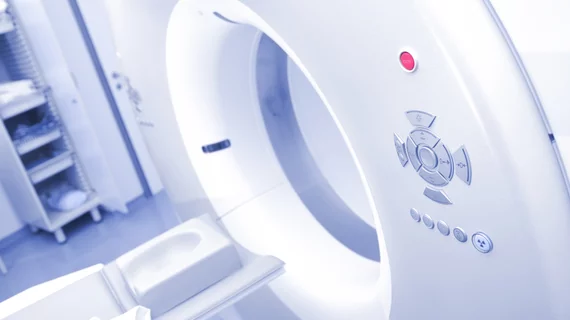FDA clears 2D image-reconstruction product for 3D MRI
GE Healthcare may ship its deep learning-based image reconstruction software called AIR Recon DL with new 3D capabilities, the company announced Sept. 29.
GE says the freshly FDA-approved features are applicable to nearly all MRI clinical procedures, cover all anatomies and enable better image quality with shortened scan times.
The upgrade additionally makes AIR Recon DL compatible with the company’s Propeller imaging sequencer. This is designed to correct for patient movement during scanning.
GE says that, to date, at least 3.5 million patients around the world have been scanned with AIR Recon DL.
The company adds that it surveyed end users of the system, finding strong satisfaction with signal-to-noise ratio, image sharpness, lesion highlighting and scan times.
The announcement quotes radiologist Tiron Pechet, MD, of Massachusetts-based Shields Health Care Group.
By expanding AIR Recon DL to 3D and Propeller, Pechet says, GE Healthcare is equipping radiologists with technological tools that are especially useful for brain imaging, “where we rely heavily on 3D sequences,” and musculoskeletal imaging, “where Propeller is important for reducing image quality variability and eliminating repeat sequences due to motion.”
GE says AIR Recon DL and the recent extensions are available on new GE Healthcare MRI scanners and as an upgrade for most of the company’s installed 1.5T and 3.0T MRI systems.
Full announcement here.

